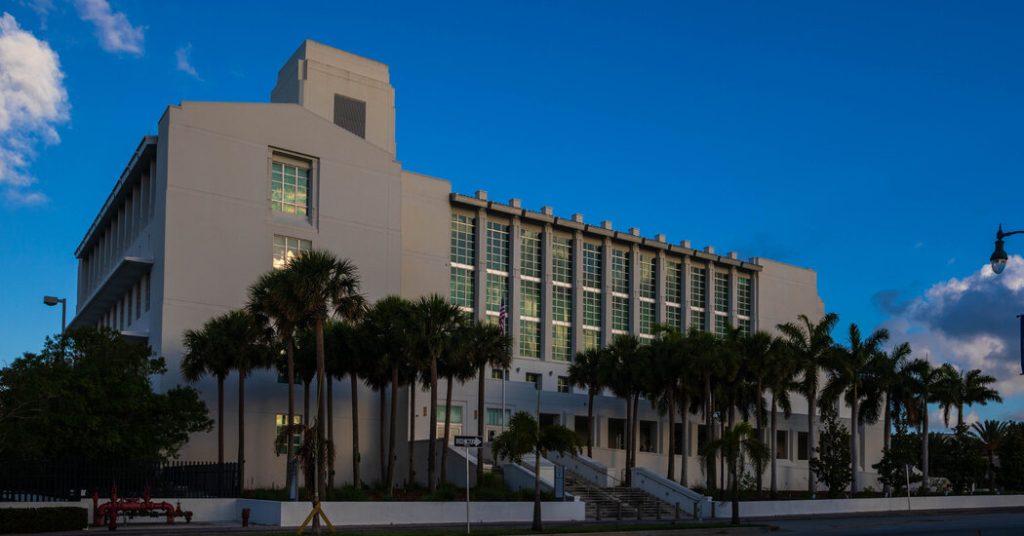A federal judge, Aileen M. Cannon, has temporarily denied a request by prosecutors to bar former President Donald J. Trump from making statements that might endanger law enforcement agents working on the case where he’s accused of illegally holding classified documents. The decision was based on the procedural grounds that prosecutors had failed to inform Trump’s lawyers properly. However, the possibility remains that the prosecution could try again to restrict Trump’s remarks if they follow the proper procedure. Judge Cannon also denied an attempt by Trump’s legal team to push back against the government’s request, which sought to have sanctions imposed on the prosecutors for not following the proper procedure.
The ruling criticized the prosecutors for failing to follow professional courtesy in informing defense lawyers of their request but left the underlying issues largely untouched. The dispute between the defense and prosecution began when prosecutors asked the judge to revise the conditions of Trump’s release to prevent him from making statements that could endanger FBI agents working on the case. This request came after Trump falsely claimed that agents were authorized to kill him during a search of his Florida property. It was the first time prosecutors had requested anything like a gag order in this case, although Trump is already facing gag orders in two other criminal proceedings.
In response to the prosecutors’ request, Trump’s lawyers accused them of seeking unconstitutional censorship and targeting Trump’s campaign speech as he runs for president again. They pointed out that the request was filed on a Friday evening, despite their appeal to wait until after the holiday weekend. Judge Cannon used her order to criticize the prosecutors for their lack of meaningful consultation with Trump’s lawyers, especially given the significance of the issue – limiting the speech of a former president running for office. The decision by Judge Cannon left the door open for prosecutors to potentially try again to restrict Trump’s remarks about the agents if they follow the proper procedure in informing his lawyers.
Overall, the ruling by Judge Cannon highlighted the procedural missteps by the prosecutors in informing Trump’s lawyers but did not address the underlying issues at the heart of the dispute between the defense and prosecution. The request to restrict Trump’s public statements came after he made false claims about FBI agents, leading prosecutors to seek limitations on what he could say. Despite the pushback from Trump’s legal team and criticism from the judge, the issues surrounding the case of illegally holding classified documents remain largely unresolved. The ruling serves as a reminder of the importance of proper procedure and professional courtesy in legal proceedings, even in high-profile cases involving public figures like former President Trump.


